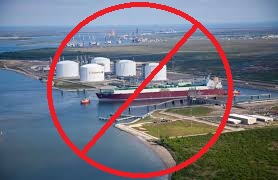Opinion: The Sun Sets on Western Slope Farms
October 20, 2016Amish Oppose Use of Drilling 'Brine' Wastewater on Roads
November 2, 2016By Don Hopey, Pittsburgh Post-Gazette, October 28, 2016
The Pennsylvania Medical Society has called for a moratorium on new shale gas drilling and hydraulic fracturing and is urging the state to establish an independent health registry and start studying fracking’s public health impacts.
“We do support a moratorium at this point because of questions that have been raised,” said Charles Cutler, a Montgomery County doctor of internal medicine and the newly elected president of the 16,000-member medical society. “Those questions now point to the need for a registry and more science and research to give us a better understanding about whether fracking is safe and what the risk is.”
The society’s 300-member House of Delegates unanimously approved a resolution at its annual meeting Sunday in Hershey calling for the fracking moratorium, registry and research.
Dr. Walter Tsou, past president of the American Public Health Association and the author of the resolution, noted that a similar resolution was rejected three years ago, but now “growing evidence has shown its increasing deleterious effects outweighs any economic benefit.”
He said the medical society’s board of directors will meet next month to plan how to get the state Legislature, the Department of Health and the governor’s office to act on the resolutions.
The medical society might not get much help from the governor’s office, however.
Jeffrey Sheridan, Gov. Tom Wolf’s spokesman, said Thursday night that the governor does not support a statewide moratorium.
“The governor understands the importance of the natural gas industry and he wants the industry to succeed while protecting the health of our residents and our environment,’’ Mr. Sheridan said. “Gov. Wolf has proposed methane regulations that are in the process of being implemented, and his administration developed some of the most stringent regulations on unconventional well drilling in the country that were recently finalized.
“The governor will continue to find ways to support the industry while ensuring we are protecting the environment and the health of Pennsylvania residents.”
Protect Pennsylvania: Health Professionals for a Livable Future, an activist alliance of physicians and nurses organizations opposed to shale gas development, said in a news release it supports the medical society’s resolution, and criticized the state Legislature for failing to establish a health registry or fund research into the health impacts of the decade-old shale gas drilling and fracking industry.
According to Protect Pennsylvania, many communities that benefited economically from the initial shale gas boom are now experiencing environmental and human health consequences.
“Pennsylvania has invested heavily into shale gas drilling, but in-state health studies have demonstrated worsening asthma, premature births, neurological and mental symptoms, and other adverse effects,” said Protect Pennsylvania’s news release, which cited bans or moratoriums on shale gas development in New York, Maryland and Vermont as appropriate precautionary steps.
Statements by the Pennsylvania Independent Oil & Gas Association and the Marcellus Shale Coalition, both representing industry concerns, touted the air quality improvements and health benefits from substituting natural gas for coal. PIOGA characterized the medical society’s resolution as “completely misinformed,” and the health risk concerns as “unfounded.”
The coalition cited U.S. Environmental Protection Agency Administrator Gina McCarthy’s statement that, “natural gas has been a game changer with our ability to really move forward with pollution reductions that have been very hard to get our arms around for many decades.”
The medical society’s call for a moratorium came just a day before the release of a new study by the Yale School of Public Health that found numerous carcinogens used in fracking have the potential to contaminate the air and water of nearby communities and increase the risk of childhood leukemia.
Published in the journal Science of the Total Environment, the study examined more than 1,000 chemicals that may be released into the air or water by fracking and found that information on their cancer-causing potential was lacking on 80 percent of the compounds, “an important knowledge gap,” it said.
Of the remaining 119 compounds, 55 were identified as confirmed or possible carcinogens, and 20 of those are linked to increased risk for leukemia or lymphoma.



